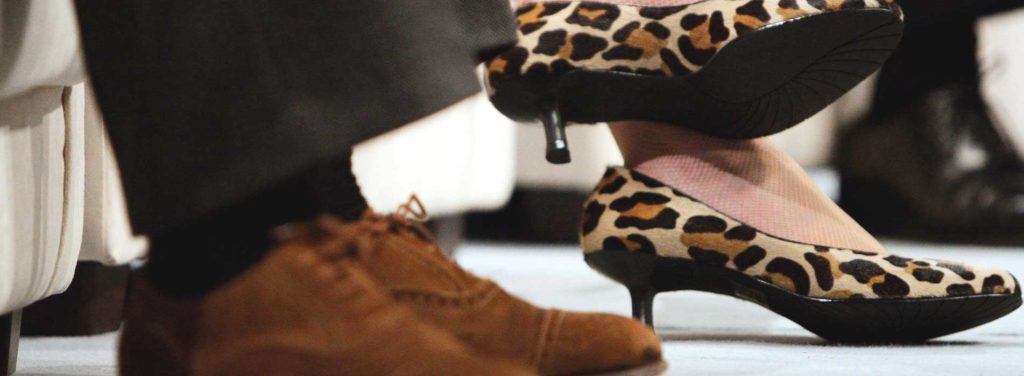Sexist Politics: The rest of the world is no different from India

Unlikeable. Unelectable. Those are just two of the adjectives being applied to some of the more prominent of the six female candidates currently campaigning to be the Democratic Party’s 2020 nominee for president of the United States.
Statement shoes! When Theresa May became Britain’s second female prime minister in July 2016, the talk was less about the looming political challenges of Brexit than her leopard-print kitten heels, embellished flats and Union Jack trainers.
And last August, a leadership tussle in Australia’s governing Liberal Party resulted in defeat for the popular and well-known woman contender Julie Bishop amid allegations of bullying and intimidation of female MPs by their male counterparts. As Australia goes to the polls on May 18, it faces the possibility of female parliamentary representation either falling or hardly rising at all from 32% at present.
Many of the world’s richest advanced democracies have an obvious and difficult problem with women in politics. As in the age before #MeToo and universal suffrage, the questions about female leadership are all too familiar: do women deserve the privilege-why, how much and to what level? Additionally, there’s the testy issue of how to treat a woman leader. Critique her clothes, as with the first female member of the US Congress, Jeannette Rankin in 1917? Evaluate her “ambitiousness”, a loaded term for women but not for men seeking to run for US president, according to a 2010 Harvard study? Sexualise her professional success as happened with US senator Kamala Harris, who is competing to be Democratic nominee for president? Within hours of her January 27 entry into the crowded competition, Harris’s relationship with a powerful California politician was in the spotlight, seeming to suggest her professional achievements were tied to male patronage.
Such treatment is par for the course for women in America, which has never had a female commander-in-chief and, even today, doesn’t quite reach the Inter-Parliamentary Union’s global average of 24.1% of lower house seats won by women. The current US House of Representatives is 23.7% female, its highest percentage ever. And only 29% of Britain’s members of parliament are women, a clear sign of how hard it is to strike a balance even in a highly developed country between acting like a leader-strong and authoritative-and appearing authentically female.
Then there is the ugly male propensity to lob sexual insults at women. Incredible though it may sound, a woman’s ‘rape-worthiness’, i.e. her sexual attractiveness, is often raised as a legitimate issue by male politicians. In the ongoing election campaign for the European Parliament, UK Independence Party candidate Carl Benjamin said that he might be induced to rape British Labour MP Jess Phillips if there were “enough pressure”. Three years ago, Benjamin had said of Phillips that he “wouldn’t even rape her”.
Towards the end of his long tenure in Brazil’s Chamber of Deputies, the man who would be elected the country’s president last year, told a congresswoman: “I wouldn’t rape you because you don’t deserve it.” Jair Bolsonaro later justified his comment saying the legislator was “not worth raping; she is very ugly”.
In the month before the November 8, 2016, American election, Donald Trump dismissed a woman’s accusation of sexual assault by saying the alleged victim “would not be my first choice”. Trump, who also derided his female political opponent as not looking “presidential”, made the following lewd comment in reference to the notorious flirtations of former president Bill Clinton: “If Hillary Clinton can’t satisfy her husband, what makes her think she can satisfy America?”
In Australia, a female senator sued a male colleague for defamation after he told her on the senate floor during a debate on women’s safety to “stop shagging men”. Unrepentant, he later said that he was “prepared to rephrase my comments. I strongly urge senator Hanson-Young to continue shagging men as she pleases”.
What it all seems to add up to is a singular focus on the physical and mental attributes of being a woman. But Vigdis Finnbogadottir of Iceland, who became the world’s first directly elected female head of state in 1980 and held office for 16 years, recently acknowledged the reality of women’s life in the public eye. “One of the things that makes it a little bit more difficult for a woman to be in a job that’s very official is how to dress…” She might have added the difficulties that arose around tone of voice-too shrill or too manly and mumsiness-too much or too little.
In the political sphere, a woman’s work is never done.
Rashmee Roshan Lall is an international affairs columnist based in London
Originally published at https://www.firstpost.com

